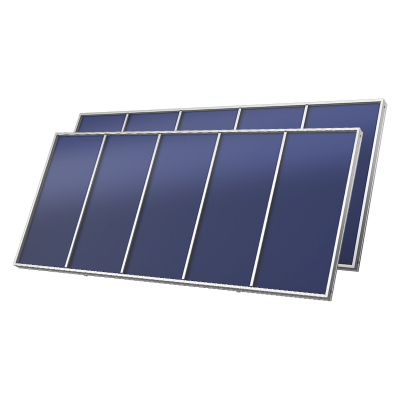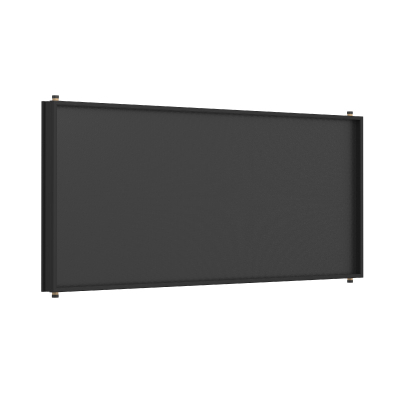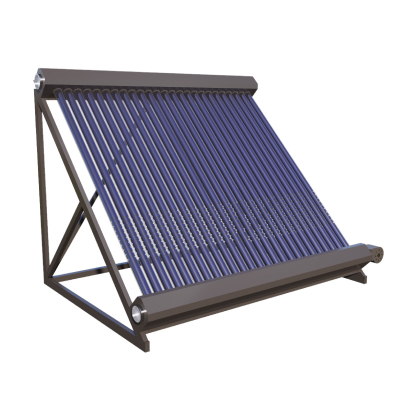How Heat Pipe Solar Water Heaters Empower Educational Institutions
How Heat Pipe Solar Water Heaters Empower Educational Institutions – A Case from Shandong
In large boarding schools or training centers, providing stable and cost-effective hot water for students and faculty is a real challenge. Energy bills are high, and traditional electric water heaters often struggle with daily volume demands. That’s why many schools are turning to renewable solutions. One such success story comes from Shandong Nationalities Secondary Vocational School in China.
Heat pipe solar water heaters are ideal for educational facilities, offering efficient, eco-friendly, and low-maintenance hot water supply. Using sealed copper pipes and vacuum tubes, these systems convert solar radiation into thermal energy—perfect for large-volume applications like school dormitories and cafeterias.
Let’s explore how this technology solved the school’s needs—and why it may be perfect for your institution too.
Project Spotlight: Shandong Nationalities Secondary Vocational School
This solar thermal project was installed at a state-level vocational school in Shandong Province. The objective was to provide consistent hot water for hundreds of students and staff across dormitories, canteens, and bathrooms.
Location: Shandong Province, China
Facility Type: Boarding vocational school
Daily Hot Water Supply: 150 tons/day
Energy Source: Solar thermal with heat pipe technology
Application Areas: Dorm showers, kitchen cleaning, wash basins
The system was designed with durability, ease of maintenance, and high thermal output in mind—essential features for educational environments with high daily usage.
How Does a Heat Pipe Solar Water Heater Work?
The heart of the system is the heat pipe vacuum tube collector. It combines thermal physics and solar engineering into a compact and powerful unit:
Solar radiation hits the vacuum tube, which is double-walled and highly insulated.
Inside the tube, a copper heat pipe absorbs the heat and vaporizes its internal fluid.
The vapor rises and transfers heat to the water tank or exchanger.
It then condenses and flows back, restarting the cycle.
The process continues as long as sunlight is available.
The design is non-pressurized, modular, and freeze-resistant, making it ideal for campus-level applications.
Why Schools and Dormitories Benefit from Heat Pipe Solar Systems
Educational institutions have a unique set of hot water needs:
High daily volume for showers and hygiene
Peak-time usage (morning and evening)
Limited maintenance staff
Budget constraints
Heat pipe solar systems address these issues with:
Fast thermal response
Low maintenance requirements
No fuel or electricity costs during operation
Long-term return on investment
For schools looking to meet green energy targets or earn energy efficiency certifications, this is an ideal step forward.
Budget and Investment Considerations
For a large system delivering 150 tons of hot water per day, the investment depends on:
Total collector area required
Orientation and roof structure
Auxiliary electric heating (if needed)
Installation complexity
Most educational institutions qualify for government subsidies, and the typical payback period ranges between 4 to 6 years, depending on local energy prices.
Environmental Impact
By switching to solar water heating, the school has significantly reduced its carbon emissions and dependency on the grid.
A 150-ton/day solar hot water system can reduce:
Electricity use by 300,000–500,000 kWh/year
CO₂ emissions by 100–150 tons/year
These figures align with China’s national push for low-carbon campus development and rural energy transition.
Other Institutions Benefiting from Heat Pipe Solar Water Heaters
Universities with residential halls
Hospitals and clinics
Government training centers
Technical colleges
Boarding academies and high schools
Each system is custom-designed to match usage patterns, student capacity, and building layout.
What to Consider Before Installation
If you're evaluating solar hot water for your school, ask these questions:
Is there enough rooftop or open space for solar collectors?
Do you need centralized or distributed water heating?
Should the system connect to existing boilers?
What is the peak hot water demand (liters/hour)?
Are solar subsidies available in your region?
Feedback from the Campus
“This system has been operating reliably. Students always have access to warm water—even in winter. It reduced complaints and lowered energy bills.”
“We integrated the solar system with our building energy efficiency program. It’s now a demonstration site for green campus practices.”
Summary
Heat pipe solar water heaters offer long-lasting, low-maintenance hot water solutions that scale perfectly for schools. The success at Shandong’s vocational school proves the technology is not only practical but also economically sound.
Interested in applying solar thermal solutions to your educational facility?
📞 Contact our team for a custom design and site evaluation.export@soletksolar.com




